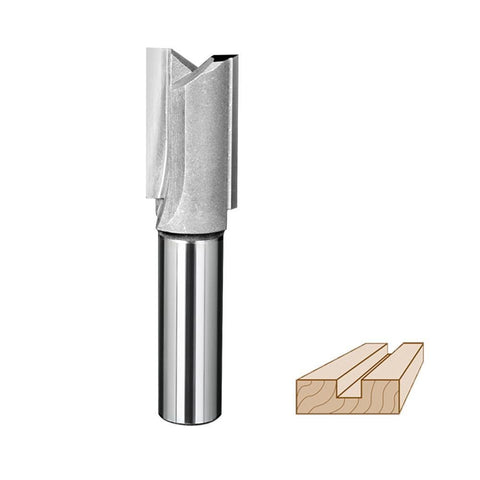Choosing the right router bit is crucial for achieving excellent results in woodworking projects. With a variety of router bits available, selecting the ideal one can be a daunting task. In this article, we will provide you with valuable insights and guidance on how to choose the perfect router bit for your woodworking project.
The first step in selecting the ideal router bit is to consider the requirements of your woodworking project. Determine the type of cut you need to make and the desired outcome. Are you looking to create decorative edges, joinery cuts, or intricate profiles? Understanding the specific needs of your project will help narrow down the options and guide your decision-making process.
Router bits come in various types, each designed for specific applications. Familiarize yourself with the different types of router bits available, such as straight-cutting, flush-trim, chamfer, rabbeting, and round-over bits, among others. Each type has its own purpose and is suited for specific tasks. Understanding the characteristics and capabilities of each type will assist you in selecting the most suitable router bit for your project.
Router bits are typically made from high-speed steel (HSS), carbide-tipped, or solid carbide. Each material offers different advantages and considerations. HSS bits are more affordable but may dull faster. Carbide-tipped bits are known for their durability and longevity. Solid carbide bits are the most expensive but offer exceptional performance and precision. Consider your budget and the demands of your project to determine the best material for your router bit.
Router bits come with different shank sizes, typically 1/4-inch or 1/2-inch. The shank size refers to the diameter of the bit's base that fits into the router's collet. Choosing the appropriate shank size is crucial, as it ensures compatibility between the router and the bit. Larger shank sizes provide more stability and reduce vibration, making them suitable for heavy-duty tasks. Smaller shank sizes are ideal for lighter applications.
When selecting a router bit, it is important to consider the quality and brand reputation. Investing in high-quality router bits from reputable manufacturers ensures better performance, durability, and safety. Cheaper, low-quality bits may compromise the accuracy of your cuts and may not last as long. Research trusted brands and read reviews to make an informed decision.
If you are unsure about the right router bit for your project, do not hesitate to seek expert advice. Consult woodworking professionals or visit specialized woodworking stores. They can provide guidance based on their experience and help you choose the most suitable router bit for your specific needs.
Woodworking is a continuous learning process. As you gain experience, you will develop a better understanding of various router bits and their capabilities. Don't be afraid to experiment with different router bits to expand your skills and discover new possibilities. Learning from trial and error will help you refine your selection process and choose the ideal router bit for future projects.
In conclusion, selecting the ideal router bit is essential for achieving exceptional results in woodworking projects. By considering the requirements of your project, understanding different router bit types, evaluating the material and shank size, and considering quality and brand reputation, you can make an informed decision. Don't hesitate to consult experts and embrace the learning process. With the right router bit in hand, you can unleash your creativity and achieve remarkable woodworking outcomes.
